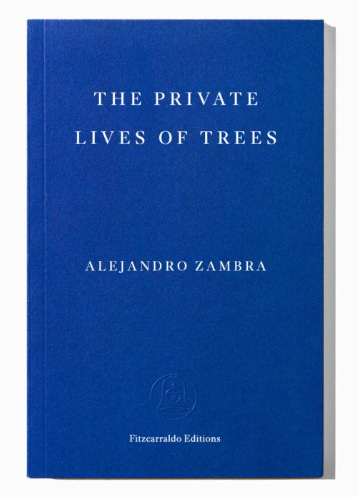Permafrost by Eva Baltasar
trans. by Julia Sanches
And Other Stories, 2021. 131 pages
“But I’m alone; I am fifty-two kilos of loneliness and lamentation, a real treasure.” (How is it that the Spanish speaking world can still regularly produce people who can plausibly call themselves poets?)
Going in I thought this was an angry lesbian book, which is almost always a safe bet (for novels, for non-fiction it’s less certain). But the narrator isn’t angry so much as lazy, which is even better. Slacker stories used to constitute a thriving genre of their own, but you don’t see them around much anymore, I guess because it takes so much hustling to get anything made. In a series of vignettes the narrator of Permafrost graduates university, lives a carefree life subletting her aunt’s apartment, gets kicked out, becomes an au pair, quits, leaves Barcelona to teach Spanish in Brussels, fucks as many women as she can, worries about being killed while visiting a prospective employer’s apartment, remembers watching porn for the first time, explores a food fetish which is kind of gross, as is the mole she doesn’t want to get checked, helps her sister through a breakup, through a marriage, through childbirth. None of that matters. This is mostly about the voice, which is cool, aloof, nonchalant.
I’d seen reviews of this at the usual places, but Emmet Matheson’s endorsement made me decide to finally read it. The other books in the trilogy are Boulder and Mammoth, which I will read eventually.
The Private Lives of Trees by Alejandro Zambra
trans. by Megan McDowell
Fitzcarraldo Editions, 2023. 96 pages
I think novels about contemporary life are important, but maybe the hardest to get right. I mean, there’s no promise of action the way there is in sci-fi or fantasy.
And yet there are strategies that work. An author can use or comment on elements of their own life to try and achieve authenticity, or reflect on the processes of art, though the risk of going too far up your own butt is there with both. You can talk about the problems people face today, at the risk of being seen as an ideologue, of being overly didactic. You can add a touch of romance or of crime or of adventure, at the risk of slipping away into genre.
Zambra’s The Private Lives of Trees takes something of an experimental route, by informing the reader early on of how the book will end:
It would be better to close the book, close the books, and to face, all at once, not life, which is very big, but the fragile armor of the present. For now, the story goes on and Veronica hasn’t arrived; it’s best to keep that in view, repeat it a thousand and one times: when she comes home, the novel ends—the book continues until she comes home or until Julian is sure that she is not coming home again.
Julian (a teacher Monday-Saturday and a writer on Sunday) makes up stories for his stepdaughter while waiting for his wife to come home from her drawing class, he thinks about his writing projects (a novel called Bonsai, after the author’s novel of the same name), his teaching gigs (he doesn’t speak Italian but he teaches it), thinks about his breakup with his last girlfriend (she spends more and more time away, ‘taking care’ of a woman, then one day he comes home to find ‘get out of my house, motherfucker’ scrawled on the wall), and how he got together with his wife (he kept ordering her homemade tres leches cake as an excuse to see her), he makes up scenarios about where his wife could be, and imagines (?) his stepdaughter reading the novel at thirty, and taking her to school the next day in the absence of her mother.
Zambra’s novel is less than 100 pages but constitutes an entire life, full of idiosyncrasies. It’s worth your time.
More books:
Three Rooms by Jo Hamya, Professor Andersen’s Night by Dag Soldstad, and These Possible Lives by Fleur Jaeggy
Dear Dickhead by Virginie Despentes and Annihilation by Michel Houellebecq
Instagram | Goodreads | Letterboxd | Bluesky





